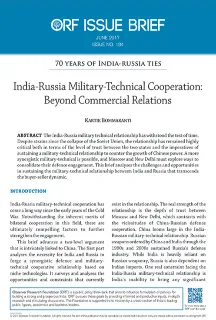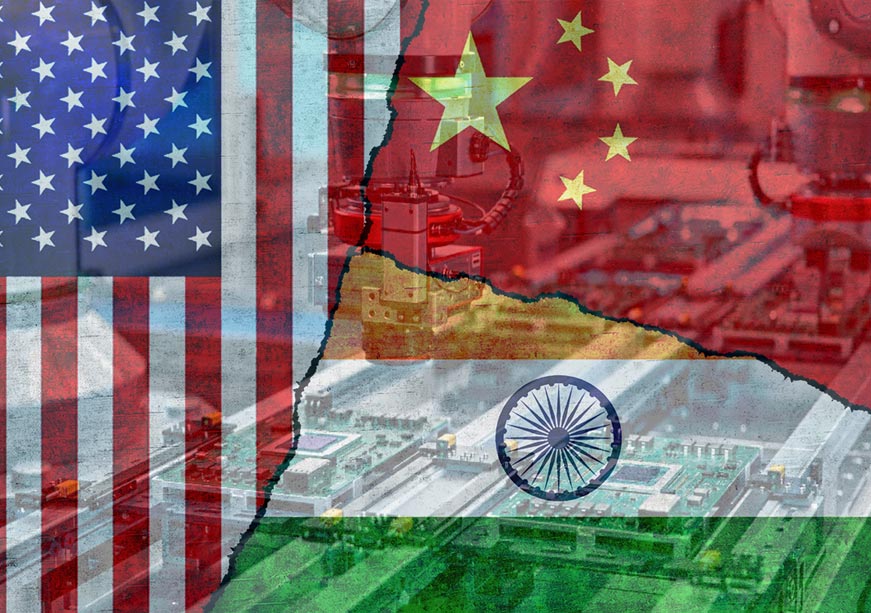At this stage, the continent does not have a common position on e-commerce, or a platform at which these issues are widely discussed; and the experience and views of countries and think-tanks are likely to vary. The G20 could lend political support to help African nations endorse the concept of the Electronic World Trade Platform (eWTP) — a multistakeholder initiative led by the private sector — to overcome this conundrum. The eWTP could provide a medium for public-private dialogue that can incubate the rules to foster the right policy and business environment for cross-border e-commerce development. [liii] The eWTP should:
- Promote public-private dialogue to improve the business environment and nurture future rules for cross-border e-commerce in some important areas, such as simplification of regulations and standards and harmonisation of tax practices; [liv]
- Cooperate with international organisations, such as the World Trade Organization (WTO), to prioritise African e-trade development needs; [lv]
- Aim to expedite the use of e-trade and the digital economy through the construction of e-trade infrastructure and the adoption of best practices — such as building cross-border e-trade experiment zones – to solve the pending problems faced by SMEs, especially in developing countries. [lvi]
A further concern is that African nations have not taken a discursive interest in e-commerce issues at a multilateral level. [lvii] The G20 should support engagement by African countries on e-commerce issues to encourage their greater engagement within larger fora, such as at the WTO. A positive step in this regard would be granting the AU a permanent seat in the G20. [lviii] The G20 countries should also encourage African nations to participate in wider trade deals that incorporate aspects of this digital economy such as the Trade Facilitation Agreement (TFA). [lix]
The G20 partnership with Africa addressing issues of e-commerce and the digital economy should be designed in a way that is informed by lessons from the past. An assessment of previous approaches such as the African Partnership Forum reveals that a dynamic of this sort can only work if the partnership is Africa-owned and includes all strategic partners in the continent. [lx] This means that the agenda of systematic dialogue between the G20 and Africa must largely be dictated by the African side. A good starting point would be to first develop an informed framework for engagement that accurately reflects the regulatory, infrastructure, and education priorities and interventions of African countries. This would then eliminate the traditional discord between North-South cooperation and South-South cooperation, and address key policy fields for cooperation. [lxi] It would also ensure policy coherence between all the different work strands of the G20 and guarantee that cooperation would not be confined to bilateral initiatives between individual African and G20 countries. [lxii] A measured and coordinated approach will ensure long-term success for the Africa-G20 partnership and the development of a robust digital economy within Africa.
The author is a Junior Fellow with ORF’s Cyber Security and Internet Governance Initiative.
Endnotes
[i] Mckinsey Global Institute, 2013 Lions Go Digital: The Internet’s Transformative Potential in Africa (Mckinsey Global Institute, 2013), http://www.mckinsey.com/industries/high-tech/our-insights/lions-go-digital-the-internets-transformative-potential-in-africa.
[ii] Ibid
[iii] GSMA, 2016 The Mobile Economy Africa 2016 (London: GSMA, 2016), https://www.gsmaintelligence.com/research/?file=3bc21ea879a5b217b64d62fa24c55bdf&download.
[iv] Imme Philbeck, 2017 Connecting the Unconnected: Working together to achieve Connect 2020 Agenda Targets (Geneva: ITU, 2017), http://broadbandcommission.org/Documents/ITU_discussion-paper_Davos2017.pdf
[v] Ibid
[vi] United Nations Conference on Trade and Development, Harmonizing CyberLaws and Regulations: The experience of the East African Community, (New York and Geneva: UNCTAD, 2012),, http://unctad.org/en/PublicationsLibrary/dtlstict2012d4_en.pdf.
[vii] Ibid
[viii] Ibid
[ix] Ibid
[x] United Nations Conference on Trade and Development, Review of e-commerce legislation harmonization in the Economic Community of West African States, (New York and Geneva: UNCTAD, 2015), http://unctad.org/en/PublicationsLibrary/dtlstict2015d2_en.pdf
[xi] Ibid
[xii] African Union. “Convention on Cybersecurity and Personal Data Protection.” June 27, 2014. https://www.au.int/web/en/treaties/african-union-convention-cyber-security-and-personal-data-protection.
[xiii] Ibid
[xiv] United Nations Conference on Trade and Development, Review of e-commerce legislation harmonization in the Economic Community of West African States, (New York and Geneva: UNCTAD, 2015), http://unctad.org/en/PublicationsLibrary/dtlstict2015d2_en.pdf
[xv] United Nations Conference on Trade and Development, Cyberlaws and regulations for enhancing e-commerce: Case studies and lessons learned, Geneva: 2015, http://unctad.org/meetings/en/SessionalDocuments/ciiem5d2_en.pdf.
[xvi] Ibid
[xvii] AfricaCERT, List of National CERTs. AfricaCERT. https://www.africacert.org/home/countries/.
[xviii] United Nations Conference on Trade and Development, Cyberlaws and regulations for enhancing e-commerce: Case studies and lessons learned, Geneva: 2015, http://unctad.org/meetings/en/SessionalDocuments/ciiem5d2_en.pdf.
[xix] Ibid
[xx] GSMA & Deloitte, Digital inclusion and mobile sector taxation 2016, (London: GSMA, 2016), http://www.gsma.com/mobilefordevelopment/wp-content/uploads/2016/07/Digital-Inclusion-and-Mobile-Sector-Taxation-2016.pdf.
[xxi] Ibid
[xxii] Ibid
[xxiii] World Bank Group, 2016 Breaking Down Barriers: Unlocking Africa’s Potential through Vigorous Competition Policy, (Nairobi: World Bank, 2016), http://documents.worldbank.org/curated/en/243171467232051787/pdf/106717-REVISED-PUBLIC-WBG-ACF-Report-Printers-Version-21092016.pdf.
[xxiv] Ibid
[xxv] Ibid
[xxvi] Ibid
[xxvii] Ibid
[xxviii] Ibid
[xxix] Mckinsey Global Institute, Lions Go Digital: The Internet’s Transformative Potential in Africa (Mckinsey Global Institute, 2013), http://www.mckinsey.com/industries/high-tech/our-insights/lions-go-digital-the-internets-transformative-potential-in-africa.
[xxx] SAIIA, DIE & IfW, Communique of the Conference Co-Hosts, T-20 Africa Conference, 2017, https://www.tralac.org/images/docs/11255/t20-africa-conference-communique-of-the-conference-co-hosts-february-2017.pdf.
[xxxi] Knight Frank, Logistics Africa 2016, (Africa: Knight Frank, 2016), https://kfcontent.blob.core.windows.net/research/1114/documents/en/2016-4022.pdf.
[xxxii] Ibid
[xxxiii] Universal Postal Union, Addressing the World — An address for everyone, Switzerland: UPU, 2012, http://danmarksadresser.dk/file/389519/UPU_whitePaperAddressingEn_2012.pdf
[xxxiv] Ibid
.[xxxv] G20. “The G20 Global Infrastructure Initiative .” News release. G20 Australia. http://www.g20australia.org/sites/default/files/g20_resources/library/g20_note_global_infrastructure_initiative_hub.pdf.
[xxxvi] Ibid
[xxxvii] Ibid
[xxxviii] Ibid
[xxxix] Ibid
[xl] Ibid.
[xli] Stephenson, Matthew. “Infrastructure Investment in Africa: How the G20 can help Africa50 Succeed.” T20 Germany (web log), February 7, 2017. http://blog.t20germany.org/2017/02/07/infrastructure-investment-africa-how-g20-can-help-africa50/.
[xlii] Ibid
[xliii] Ibid
[xliv] Ibid
[xlv] Ibid
[xlvi] Hanusek, E. A., and L. Woßmann. “Education and Economic Growth.” Internation Encyclopedia of Educationq 2 (2010): 245-52. http://hanushek.stanford.edu/sites/default/files/publications/Hanushek%2BWoessmann%202010%20IntEncEduc%202.pdf.
[xlvii] “Smart Africa Strategic Vision.” Smart Africa. https://smartafrica.org/IMG/pdf/smart_africa_strategic_vision.pdf.
[xlviii] Ibid
[xlix] T20. Communiqué of the Conference Co-Hosts. (Johannesburg: Communiqué of the Conference Co-Hosts, 2017), 6. https://www.die-gdi.de/fileadmin/user_upload/pdfs/veranstaltungen/2017/20170203_T20_Africa_Communique.pdf.
[l] Indian Technical and Economic Cooperation Programme, Partner Countries. Ministry of External Affairs, India. https://www.itecgoi.in/ITEC%20Countries.php
[li] Ibid
[lii] Kenneth L. Nichols, “Optimizing The Silver Collar Worker: In The Shoes Of The Older Employee,”International Journal of Organizational Theory and Behaviour 4 (2001): 230.
[liii] B20. “Towards an Innovative, Invigorated, Interconnected and Inclusive World Economy.” 2016 B20 Policy Recommendations for the G20. B20 China. https://www.b20germany.org/fileadmin/user_upload/documents/B20/b20-policy-recommendations-2016.pdf
[liv] Ibid
[lv] Ibid
[lvi] Ibid
[lvii] T20. Communiqué of the Conference Co-Hosts. (Johannesburg: Communiqué of the Conference Co-Hosts, 2017), 6. https://www.die-gdi.de/fileadmin/user_upload/pdfs/veranstaltungen/2017/20170203_T20_Africa_Communique.pdf.
[lviii] T20. “Think 20 Solutions: G20 and Africa — Ready for a Steady Partnership?” G20 Germany. http://www.t20germany.org/2017/05/29/t20-solutions-g20-africa-ready-steady-partnership/.
[lix] Ibid
[lx] German Council for Sustainable Development, Recommendations of the German Council for Sustainable Development to the German Government, (Berlin, 2017) 4.
[lxi] Ibid
[lxii] Ibid

 PDF Download
PDF Download



 PREV
PREV



